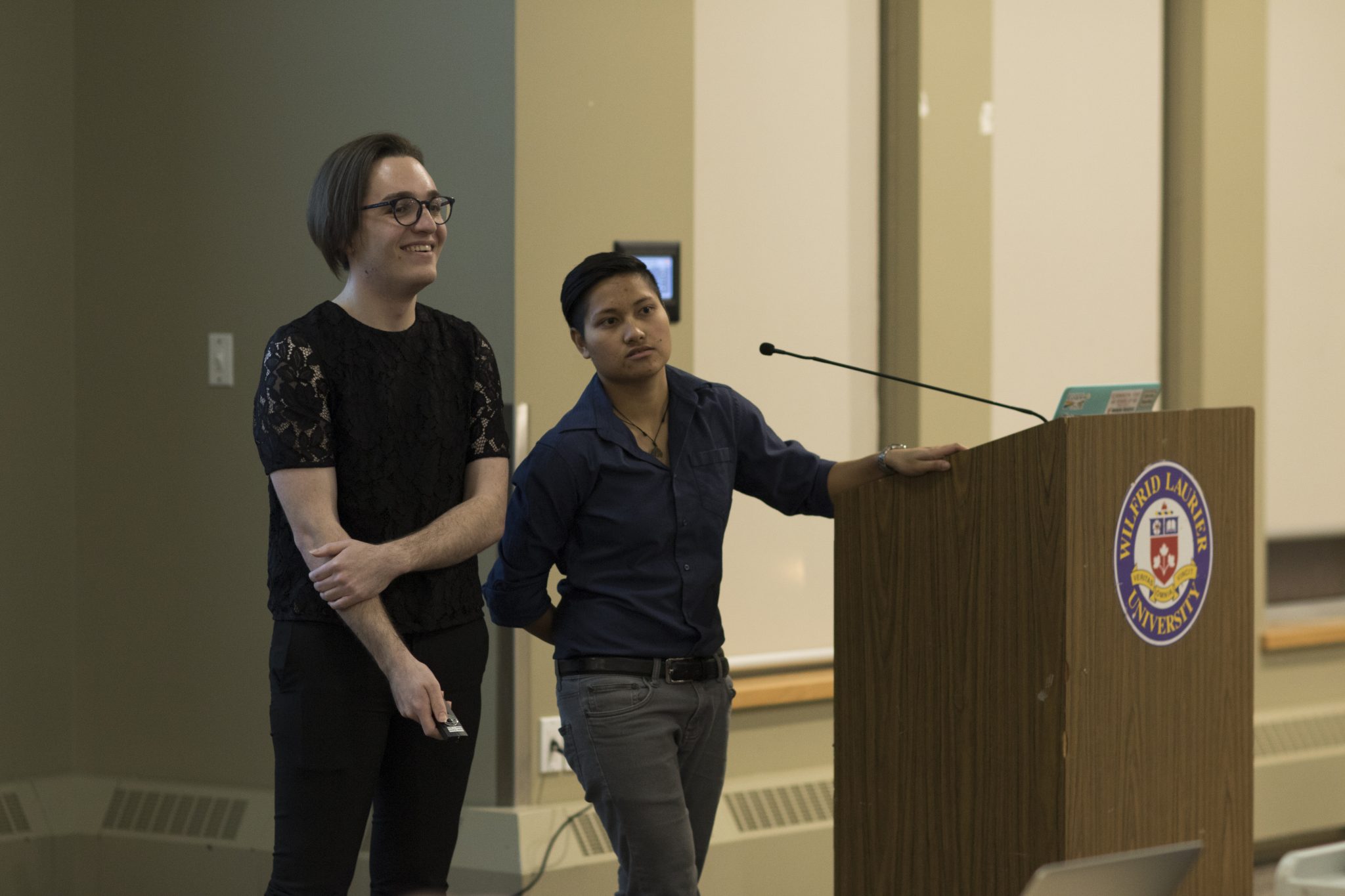Rainbow Centre facilitates Trans Allyship workshop


On Nov. 1 at 5 p.m. the WLU Rainbow Centre presented the fourth annual Trans Allyship workshop held in the Paul Martin Centre.
The workshop was facilitated by Toby Finlay and Bea Sookpaiboon, both representatives from the Rainbow Centre.
The workshop facilitators described trans allyship as a process that involves understanding how your beliefs have been informed by cisgender privilege and working to unlearn these beliefs in order to challenge everyday institutions that reinforce this privilege.
Originally, the workshop was scheduled for Sept. 27. However, a statement released by the Rainbow Centre on Facebook on Oct. 2 explained the events which lead to the rescheduling of the workshop.
“On Wednesday Sept. 20, the Rainbow Centre was alerted that our posters had been defaced with transphobic hate speech and since then we have been working tirelessly to support our community, respond appropriately, and plan for our safety,” the post said.
“Our campus climate is inhibiting trans students from feeling safe when talking about their needs or occupying space on campus. It is the responsibility of all students, staff, faculty and community members to challenge the manifestations of transphobia in our communities,” the statement read.
“And in particular, it is the responsibility of this university’s administration to address this violence and develop interventions in support of students who are marginalized by this university’s culture,” the statement continued.
An additional statement released by the Diversity and Equity Office (DEO) also expressed disappointment with the actions of those who defaced the posters and noted the importance of trans allyship.
The programming offered by the Rainbow Centre on Nov. 1 is meant to spark open and positive discourse.
The Trans Allyship workshop consisted of an informational presentation surrounding three main points: why we need trans allyship, who we are in relation to to trans allyship and how we should practice trans allyship.
“Programs like Trans Allyship are, therefore, important in sharing these skills, and we hope that those who attend can apply their learning in solidarity with trans people on campus.”
The workshop also included small group activities throughout the presentation. For example, one activity consisted of pronoun scenarios where groups would respond using the knowledge they had learned from the presentation.
The facilitators also discussed the importance of community support as a part of trans allyship. The presentation included conversations on the problematic aspects of navigating gendered spaces, the importance of not policing someone’s gender expression and how to use gender-inclusive language.
“We developed these workshops when we realized that despite the pervasiveness of transphobia on our campus, many members of the university community lacked the knowledge and confidence to support trans students,” the Rainbow Center said in a statement released to The Cord.
“These workshops were developed by trans and non-binary students in The Rainbow Centre who wanted to provide administrators, faculty and students with the skills to support trans people,” the statement read.
The statement also spoke about how universities should be doing more to address the institutional cis-normativity that occurs on campuses.
“We cannot continue to responsibilize [sic] trans students for redressing the harm inflicted by this institution; we need individuals who are prepared to honour trans people, challenge transphobia, and foster cultures of safety and accountability,” the statement read.
“Programs like Trans Allyship are, therefore, important in sharing these skills, and we hope that those who attend can apply their learning in solidarity with trans people on campus.”

